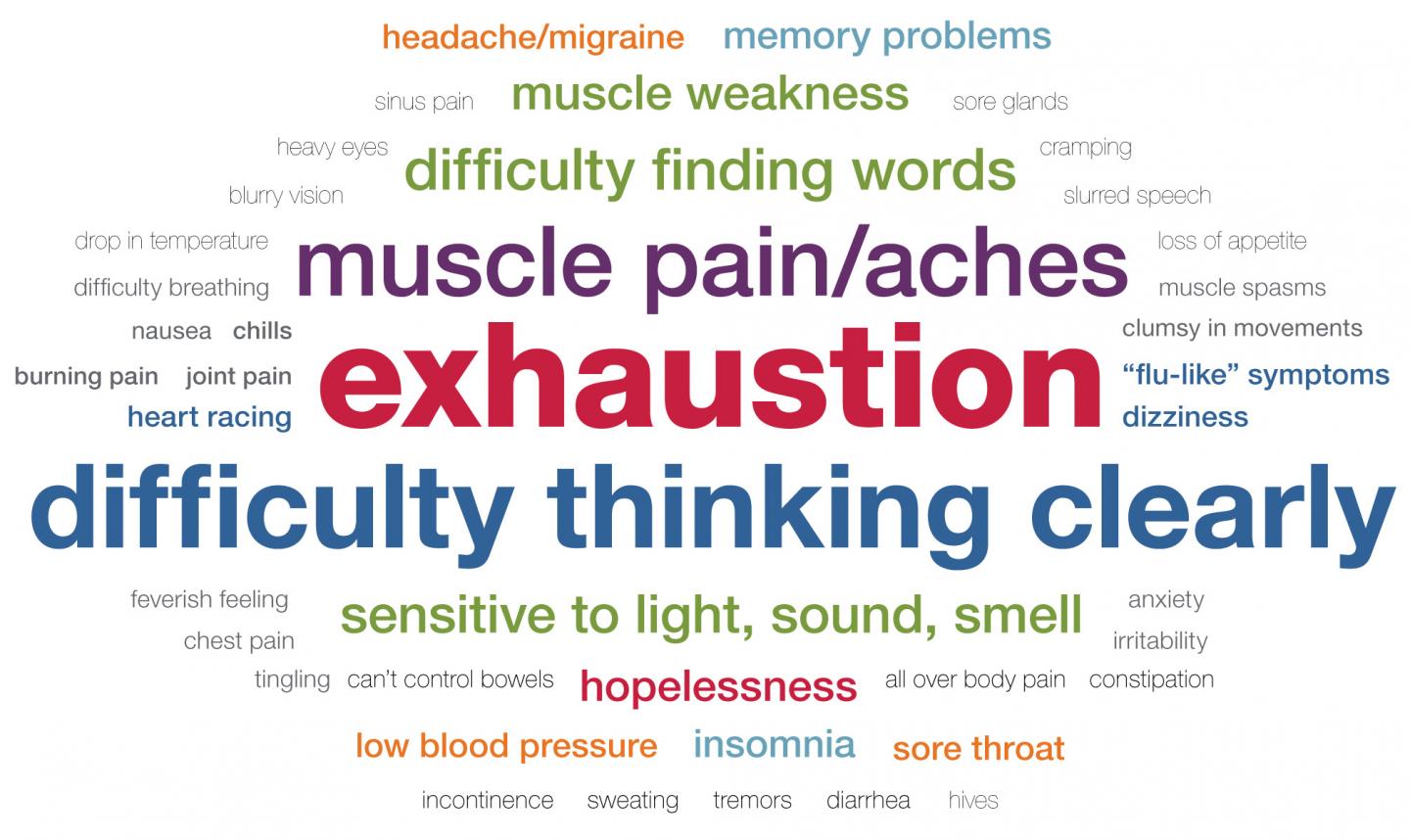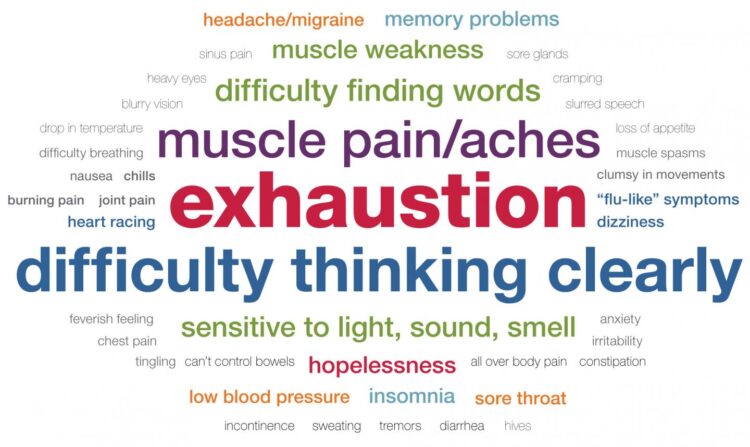First publication from NIH ME/CFS study takes deep dive into key feature of the disease

Credit: NIH/NCCIH
One of the major symptoms of myalgic encephalomyelitis/chronic fatigue syndrome (ME/CFS) is post-exertional malaise (PEM), the worsening of symptoms after physical or mental activities. Using their own words and experiences, people with ME/CFS described how debilitating PEM can be in a study in Frontiers in Neurology. This is the first publication to come out of the National Institutes of Health’s intramural post-infectious ME/CFS study.
“Post-exertional malaise following normal activities is unique to ME/CFS and we do not understand the biology underlying this severe and harmful feature of the disease,” said Walter Koroshetz, M.D., director of NIH’s National Institute of Neurological Disorders and Stroke (NINDS). “In-depth conversations with people who experienced post-exertional malaise and listening to them describe their individual experiences can provide a perspective not achieved through surveys. This study provides a window into just how much post-exertional malaise can affect a person’s quality of life.”
Researchers led by Avindra Nath, M.D., clinical director of NINDS, recruited 43 individuals with ME/CFS to participate in nine focus groups discussing their experiences with post-exertional malaise, including activities that led to it, how long it lasted, and techniques they used to help decrease their symptoms. Five out of the nine focus groups included participants who experienced PEM following a cardiopulmonary exercise test (CPET), which can measure how the body reacts to exercise and is often conducted using a stationary bike.
The focus groups were part of a larger study taking place at the NIH Clinical Center designed to take a comprehensive look at ME/CFS preceded by an infection. The goal of the larger study is to identify clinical and biological aspects of ME/CFS that may improve understanding of causes and how the disease changes over time. Dr. Nath and his colleagues will also examine the progression of PEM in study participants who undergo a CPET. The researchers included CPET experience in the PEM focus groups to assist in the design of the exercise challenge of the NIH ME/CFS study.
ME/CFS is a debilitating, chronic disease that may affect between 836,000 and 2.5 million people in the United States. In addition to PEM, people with ME/CFS will often experience pain, cognitive difficulties, and severe fatigue that does not improve with rest. The disease can affect all parts of the body including the immune, metabolic, cardiovascular, and neurological systems. There is no treatment for ME/CFS.
Qualitative analysis from the focus groups revealed that although the participants used a wide range of phrases to describe their experiences, many of their PEM symptoms fell into three core categories: exhaustion, cognitive difficulties, and neuromuscular complaints. Additional PEM symptoms included headaches, pain, nausea, sore throat, and sensitivity to light and sound. The onset of PEM is generally between 24 and 48 hours after exertion and can last from 24 hours to several weeks.
Almost everyone in the study indicated that complete rest, often in a dark and quiet room, was required to reduce the symptoms.
In addition, many participants described efforts to plan ahead and limit activities to avoid PEM, while also acknowledging that it can occur unexpectedly.
“It was quite striking to hear the extent to which PEM can affect their quality of life,” said Barbara Stussman, statistician at the NIH’s National Center for Complementary and Integrative Health and lead author of the study. “The widespread body symptoms, the unpredictability of PEM, and the sometimes-lengthy recovery greatly hindered individuals’ ability to live a ‘normal’ life.”
The study also identified, for the first time, differences between PEM caused by daily activities, such as grocery shopping or going to a doctor’s appointment, and PEM caused by the lab test CPET. The results suggest that the overall symptoms were similar, but PEM caused by the exercise test came on faster and lasted longer.
Additional research is required to learn more about the causes of PEM in people with ME/CFS. Future studies may identify sub-types of PEM, which may help guide targeted treatments.
###
This study was supported by the NIH Intramural Program.
Reference:
B Stussman et al. Characterization of Post-Exertional Malaise in Patients with Myalgic Encephalomyelitis/Chronic Fatigue Syndrome. Frontiers in Neurology, 2020.
For more information, please visit:
ninds.nih.gov
https:/
https:/
The NINDS is the nation’s leading funder of research on the brain and nervous system. The mission of NINDS is to seek fundamental knowledge about the brain and nervous system and to use that knowledge to reduce the burden of neurological disease.
About the National Institutes of Health (NIH): NIH, the nation’s medical research agency, includes 27 Institutes and Centers and is a component of the U.S. Department of Health and Human Services. NIH is the primary federal agency conducting and supporting basic, clinical, and translational medical research, and is investigating the causes, treatments, and cures for both common and rare diseases. For more information about NIH and its programs, visit http://www.
Media Contact
Barbara McMakin
[email protected]





